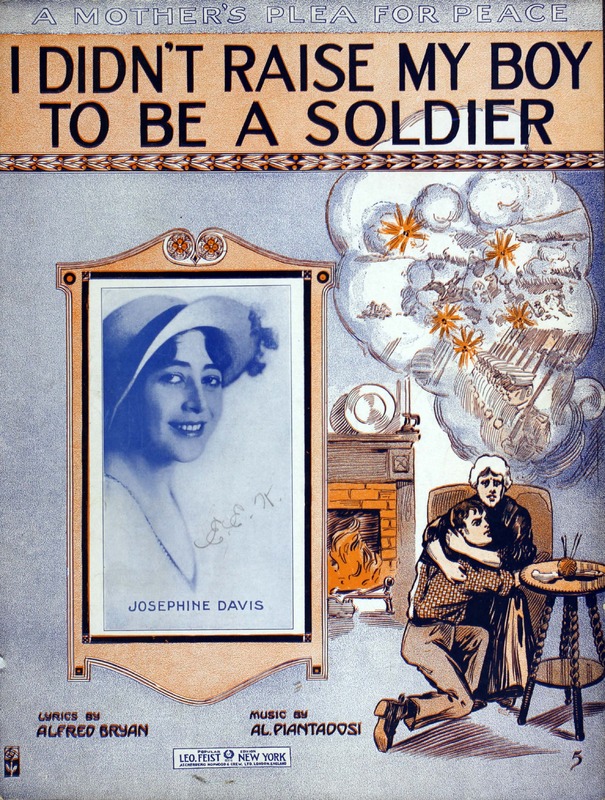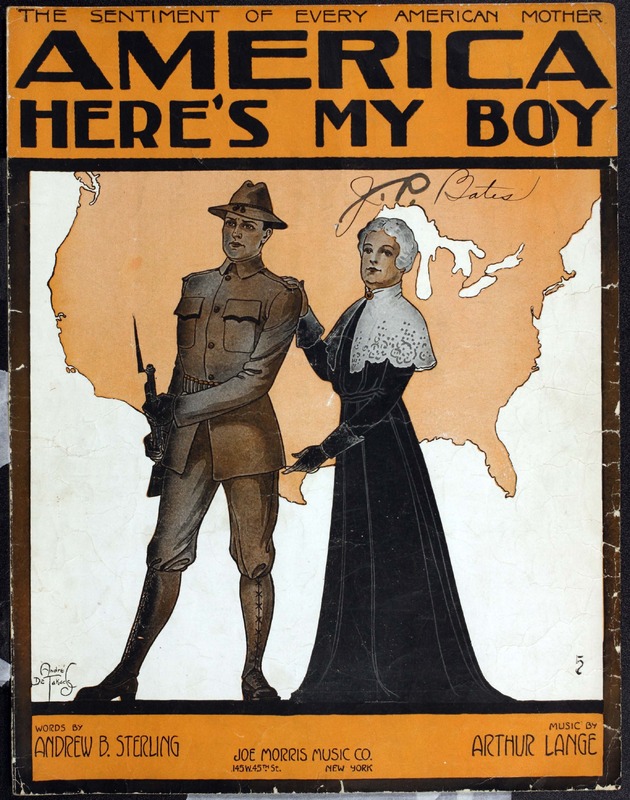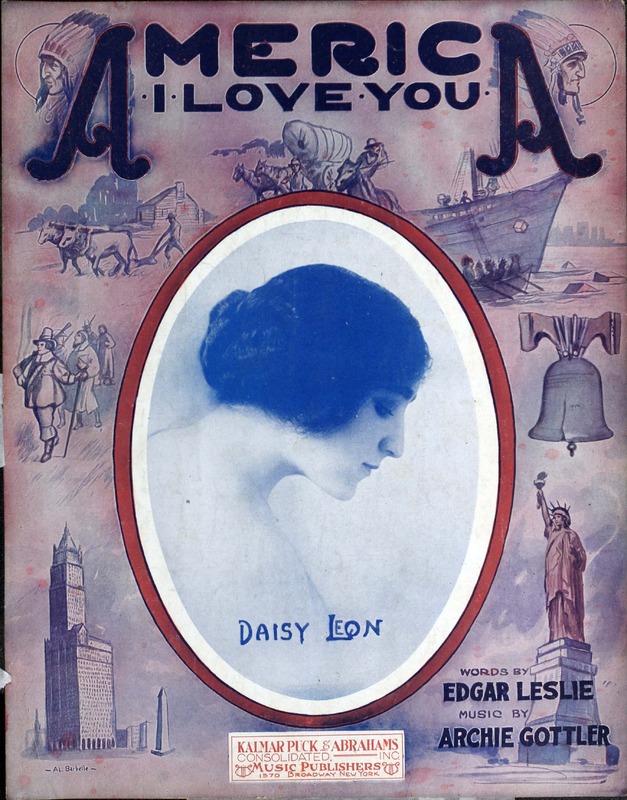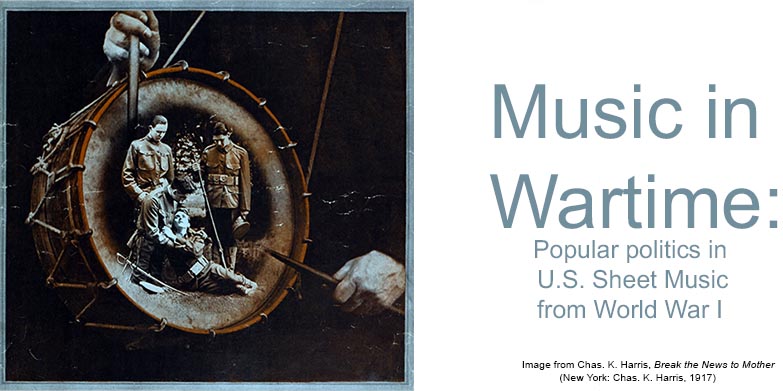America & America

Title found in both The Louis and Jodi Atkin Family Collection and Gaylord Music Library Special Collections with varying photographs. Click the image for more details about this item; click here to download a pdf of the score.
When World War I began in 1914, the United States wanted no part of it. Songs like I Didn’t Raise My Boy to Be a Soldier (1915) warned against American mothers losing their children. At the time, the United States pursued a policy of non-intervention, refusing to participate in other nation’s problems. I Didn’t Raise My Boy went one step further by promoting pacifism, suggesting arbitration rather than warfare as a solution to the conflict.
The cover illustration for I Didn’t Raise My Boy dramatizes these views – a white-haired mother clings to her soldier-age son; the safety of home (hearthfire and knitting needles) contrasts with the imagined dangers of the battlefield (gunfire and bayonets). Composer Al Piantadosi (1884-1955) quotes 18th-century Irish composer Thomas Moore’s song The Minstrel Boy, about a songster-turned-soldier who dies in battle. The Minstrel Boy had been popular during the American Civil War. Listen to I Didn’t Raise My Boy to Be a Soldier at the University of California, Santa Barbara Library here.

Title found in both The Louis and Jodi Atkin Family Collection and Gaylord Music Library Special Collections. Click the image for more details about this item; click here to download a pdf of the score.
America, Here’s My Boy (1917) reflects the American mother’s change of heart. The white-haired mother who didn’t raise her gingham-clad boy to be a soldier now proudly offers her uniformed son to the war effort. Illustrator André C. de Takacs replaces the privacy and intimacy evoked by I Didn't Raise My Boy's cover with public support of the United States as an international player, represented by the background image of the country’s map. The musical references have changed, as well; composer Arthur Lange (1889-1956) quotes the opening line of Yankee Doodle in his song. Listen to America, Here’s My Boy at the University of California, Santa Barbara Library here.

Title found in both The Louis and Jodi Atkin Family Collection and Gaylord Music Library Special Collections with varying phtographs. Click the image for more details about this item; click here to download a pdf of the score.
Lange’s quotation of Yankee Doodle, with its references to the American Revolutionary War, is a typical representation of how the United States justified the switch from non-intervention to active participation in the War. The self-identified land of the free argued that, just as it had spread freedom and democracy across North America, it now had a duty to bring those values back to Europe. The cover illustration for America, I Love You (1915), composed by Archie Gottler (1896-1959), demonstrates this kind of historically-rooted patriotism. Artist Albert Barbelle (1888-1957) presents vignettes from United States history ranging from the Boston Tea Party to covered wagons heading west. America, I Love You does not specifically mention the war in Europe, but its positive presentation of the United States as a free country would have been acceptable both to the non-interventionists of 1914 as well as the growing contingent of Americans in favor of the war.
America, I Love You is musically distinctive because its verses are in a major key, but its chorus moves to the minor. In retrospect, this modulation may be heard as a reflection of Americans’ uncertainty of how their love of country should affect their participation in the first World War. Listen to America, I Love You at the University of California, Santa Barbara Library here.
